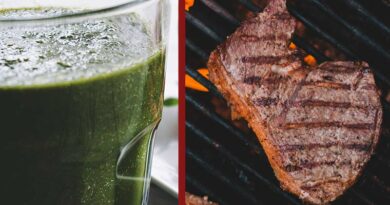Why is wheat so bad?
Why is wheat so bad?
Foreword – please note that there are a couple of technical terms in this. Please don’t be put off by any of them. You don’t need to know what “amylopectin” is – you just need to know that it is one of the two main starches found in wheat – and then to remember that dieticians tell you to base your meals on starchy foods! Please also note that I have not put in the full references in what follows. I have put "Chapter 2 ref 3", which refers to the reference chapter and number from the book "Wheat Belly". If any of you want a full reference please just write in the comments below and I'll track it down and write it out for you.
In the latest edition of “Stop Counting Calories & Start Losing Weight” I added some “reflections on Phase 2”, which included the following words:
“Wheat would be my first suspect. I have yet to meet someone who does not feel better and lose weight faster staying off wheat until at least close to their goal weight.”
I don’t know how else to put this – I really have yet to meet that single person who does not feel better and lose weight faster staying off wheat. I bet you have found the same – when you stay off wheat, you feel better, you’ve got more likelihood of losing weight and you don’t crave more wheat. When you eat wheat, you may get away with it on the odd occasion. More likely you suffer bloating, water retention, muscle aches and digestive reactions quite quickly.
The “wheat issue” has been one of the most powerful and consistent observations since writing The Harcombe Diet. I knew that, in Australia, the most common Food Intolerances are to milk and wheat. Dr. Brostoff, one of the leading Food Intolerance specialists in the UK, lists the most common foods causing intolerance in the UK also as milk and wheat. So, I knew that food intolerance alone was a reason for seeing problems with wheat so frequently. However, I didn’t understand the full extent of why wheat particularly is so bad for humans until I read Dr William Davis’s new book “Wheat Belly”.
It is due to be released in the UK in late October, so I got a US copy shipped over and went through it for this article. Here are eight key reasons, beautifully explained by Dr Davis, as to why wheat is the unique problem that it so clearly is. We just need to start off with a bit of history and nutrition first...
The rest of this article is available to site subscribers, who get access to all articles plus a weekly newsletter.
To continue reading, please login below or sign up for a subscription. Thank you.




